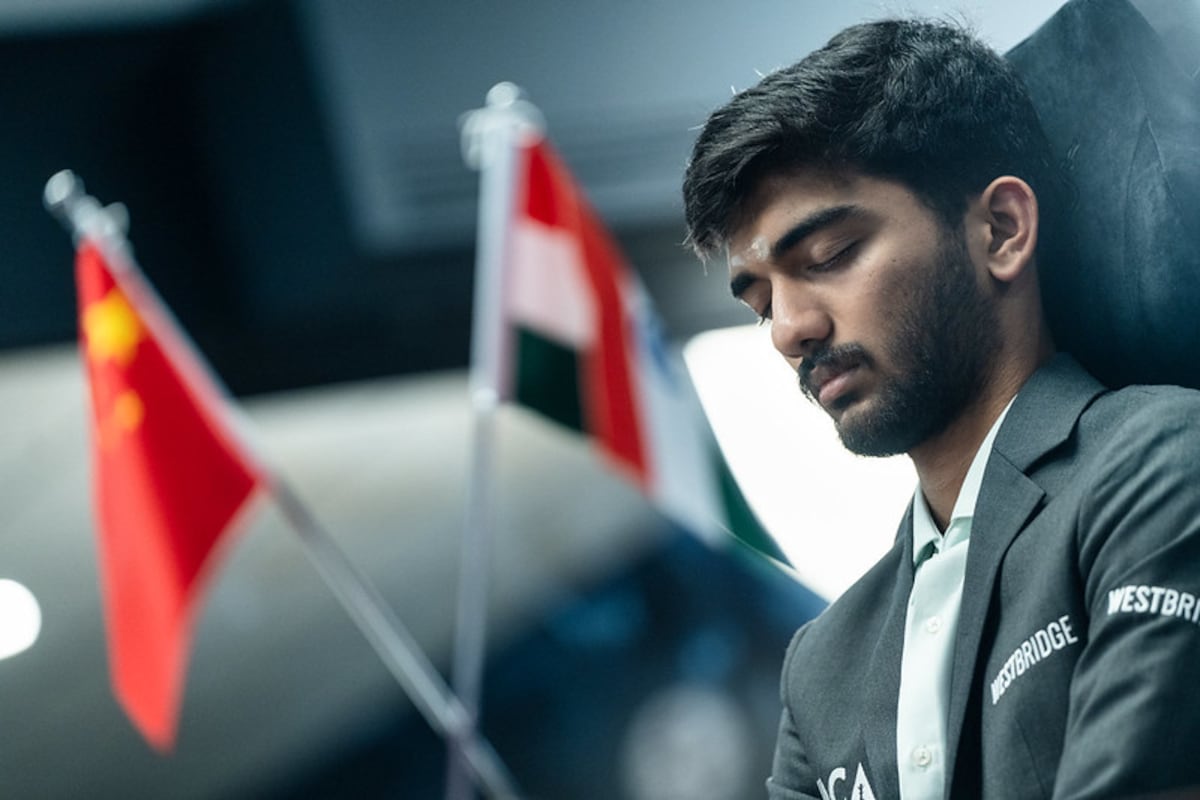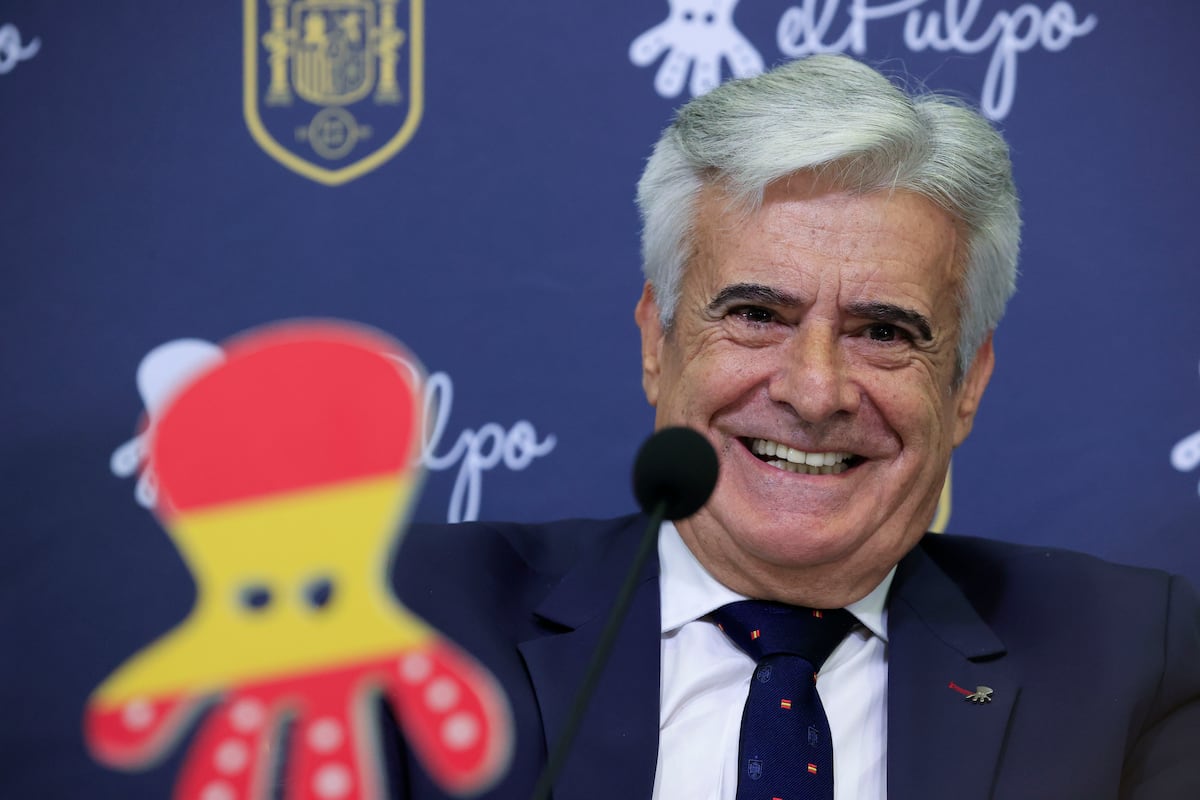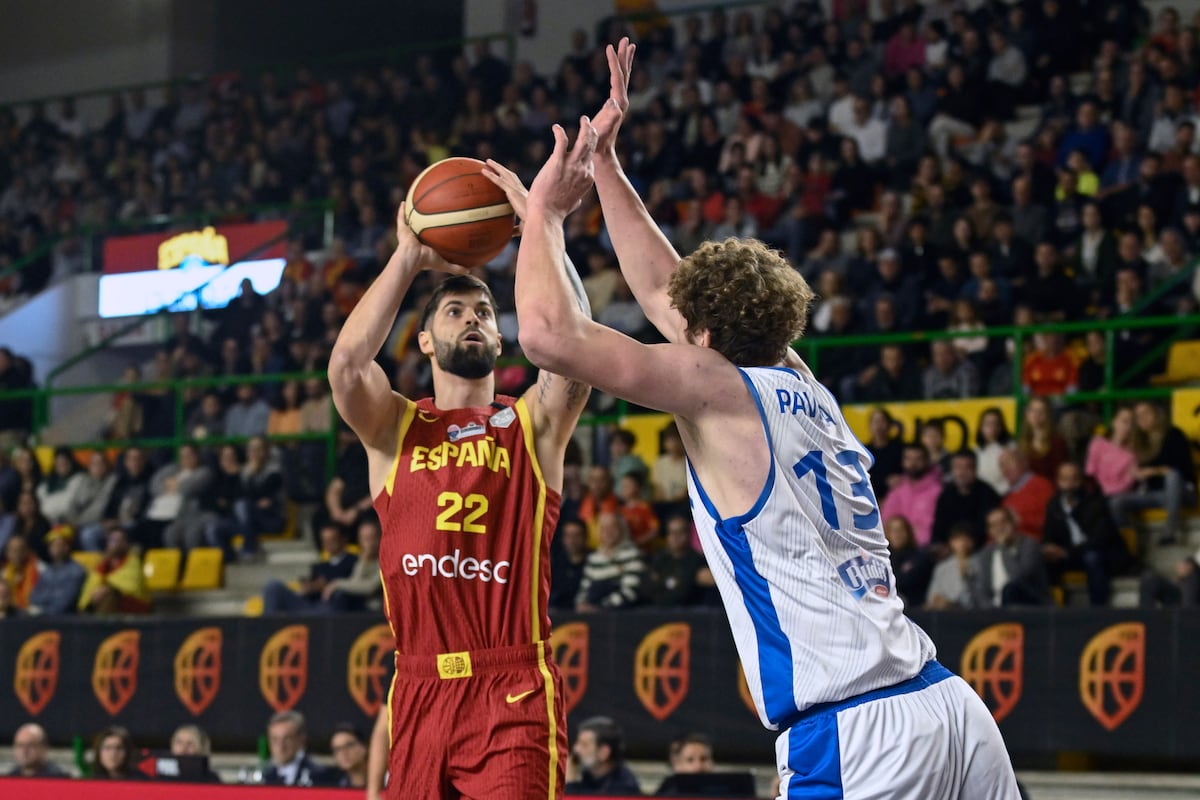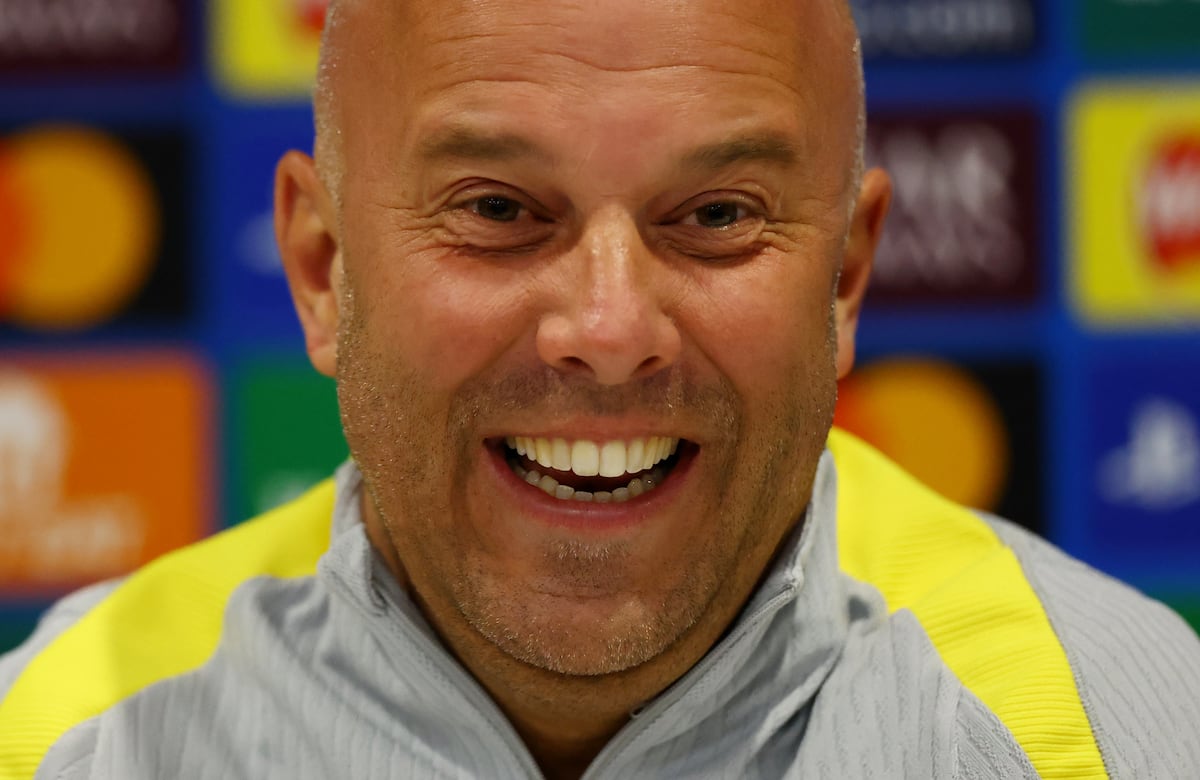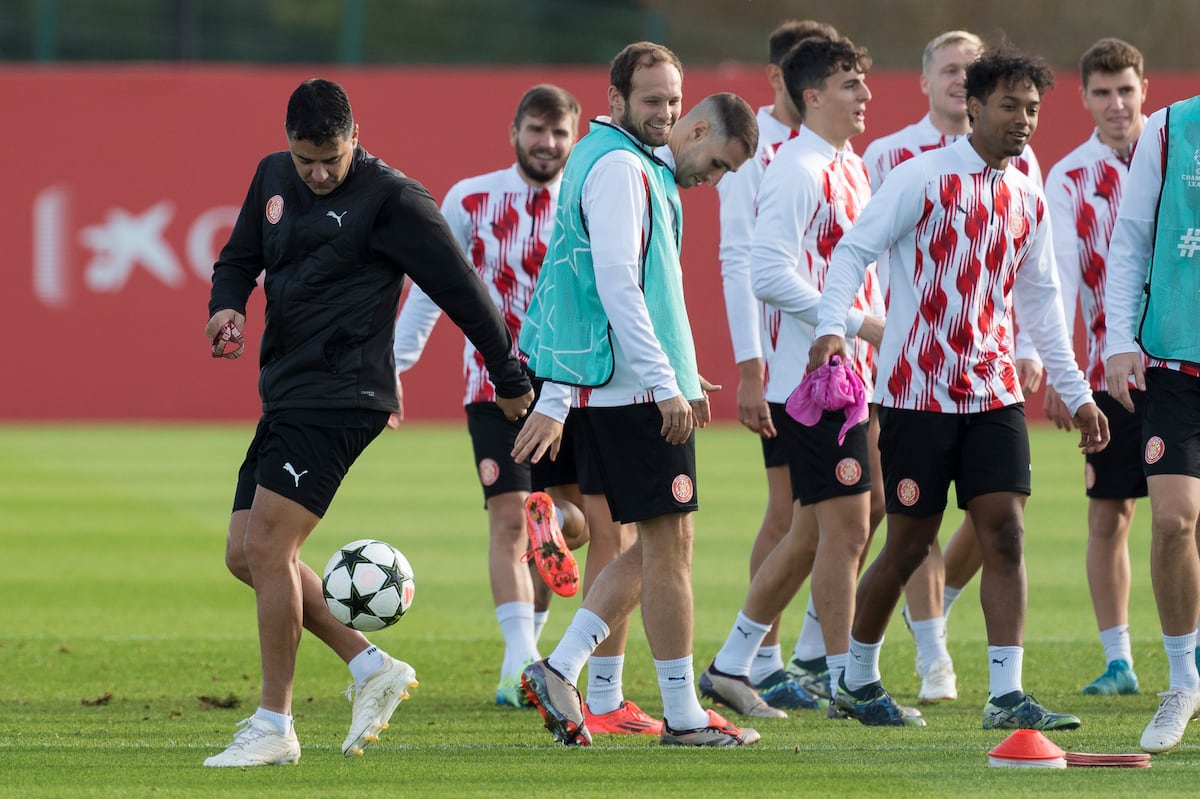Liren Ding is not yet at his best level, despite his amazing victory in the opening round and the comfortable tie in the 2nd of the World Cup in Singapore, in the best of fourteen, with the 18-year-old Indian Dommaraju Gukesh. East, relentless in exploiting his rival’s mistakes, won the 3rd this Wednesday after the Chinese did the most difficult thing very well and then collapsed after not finding a relatively simple defense. The 4th game will be played on Friday, with Ding on the white pieces side.
Grzegorz Gajewski, a 39-year-old Polish grandmaster, is a gray, super-discreet man, whose role is reminiscent of that of a government president’s advisors who greatly influence him but never appear before the cameras. Gajewski is not even among the top ten Poles on the world list, and he plays few tournaments. But he was the coach of the five-time world champion Viswanathan Anand, and since the pandemic he is one of the great signings of the Westbridge-Anand Chess Academy (WACA), which has contributed a lot to the production of great Indian talents such as Gukesh, Praggnanandhaa or Sister of this, Vaishali. Of Gukesh’s team of coaches and analysts, he only publicly recognizes Gajewski; the rest are secret.
Gajewski went to have breakfast and lunch this Wednesday at the Tangerine restaurant at the Equarius hotel, headquarters of the World Cup in Singapore, as if he were a cloistered monk. In the morning he barely responded to the cordial greeting from a neighboring table; at noon he did not say hello when entering or leaving, despite the fact that there were, among others, some illustrious participants in the parallel activities of the World Cup, such as the former world champion Alexandra Kosteniuk (now Swiss), the runner-up Boris Guélfand, Israeli , or a living legend, the 73-year-old Filipino grandmaster Eugene Torre.
The Polish coach had his mind set on an ultra-specialized field, that of preparing openings (ways of starting a game), where he is considered a world authority. And it is almost certain that among his most poisonous preparations that morning was the wicked trap into which Ding almost fell in the afternoon, and which marked the third game.
After a very classic opening (the Orthodox Defense), with a century and a half of history, Gukesh invited Ding to enter sharp positions, which require a lot of precise calculation, where the prodigious Indian handles himself like a fish in water. The Chinese declined and preferred a position without checkers, apparently boring. But lo and behold, the Gukesh/Gajewski tandem had already foreseen it: the challenger continued playing fast, while the champion immersed himself in long reflections.
And so the point was reached, in the fourteenth set, where Gajewski had planted his deadly trap. Gukesh then did a bit of theater, thinking for a few minutes about the move he had already decided, so that his rival would think that he was improvising, instead of applying a perverse laboratory preparation. There was only one saving move for Ding’s Black, totally counterintuitive, very difficult for a human being to see because it consisted of making an active rook passive.
But the champion smelled something strange, and his intuition triggered the red alarm. After 34 minutes of intense reflection he found the only salvation. Gukesh tried to put on a poker face, but it is not safe to say that inside he was swearing and cursing his opponent’s extraordinary talent.
However, the most dramatic was yet to come. The same thing happens to chess players who are out of shape or inactive for a long time—like Ding, who was ill and depressed since he became world champion in May 2023 until shortly before last Monday, when he won the first game in Singapore. than the most illustrious veterans: their talent is still intact, and also enriched by great experience, but the loss of reflexes and calculation capacity can lead them to make big mistakes. It is still not the same as December 2019, just before the pandemic, when the then champion and still today number one,Norwegian Magnus Carlsen admitted: “Ding is the rival I fear the most.”
Ding failed, with a crash, when he only needed to complete his defense with the easiest part (a variant of five almost forced moves, from the 18th, which took him to a position he could not lose). His inaccuracy – double, also in the 19th, but this is more understandable – left him in a painful, almost desperate situation: with one piece less and with hardly any compensation; To make matters worse, with fewer minutes available on the clock than plays to be made to overcome the control of the 40.
From there, Gukesh was that human machine that has made him the youngest candidate in history; relentless and precise, he continued to press until Ding lost time in a hopeless position. Later, after passing the anti-doping control, the Indian said something surprising: “I was already happy the previous two days, and today even more so because everything went well.” When a journalist reminded him of Carlsen’s words after the first game – “Gukesh has done everything wrong” – the candidate was more specific: “Yes, I made mistakes that day because it was my first time in a World Championship final. I remember that Carlsen also committed them in the same situation.”
Gajewski was not visible at the time. He probably celebrated his success in the silence and solitude of his room: although his sibylline trap had not been directly effective, it had caused the world champion to get into trouble when it came to finding the saving path after getting rid of it. .

